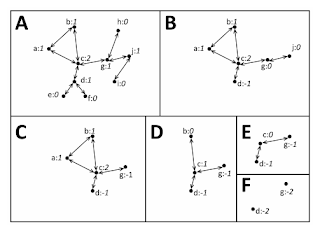I can honestly state this is the first blog post inspired by a nightmare (of sorts).
Flashing back to undergraduate, I was in my dream looking at an exam in Thermodynamics. In typical dream fashion, even though I read and understood the questions - mind you, I recall passing this particular test on the Carnot cycle with an 87 - I could not answer. Dream state, I was a blank!
I relate this to the word "paleo" meaning ancient; prehistoric. Hence, the current "paleo diet" craze to "eat like a caveman," though cavemen didn't do things like Cross Fit.
I extended this departure from modernity to the mind...
What if: we're still that caveman that depended on our memory to survive? "Knowing" the part of the forest the mamoths would stampede in; the Saber Tooth tigers hunted US in packs was probably necessary to our continued survival! Nikola Tesla was said to have a photographic memory. In the age of search engines, are we neglecting Memory Consolidation: sometimes called "no mind" in martial arts, the product of acquiring new information, rehearsing it and putting it from short-term to long-term memory; "wiring ourselves" to see a pattern and know how to solve a math problem; Sudoku puzzle or spot the charging Mamoth/Saber Tooth from a mere rustle of the trees. We have leaned on the combination of the Internet, computer and power point, delivering complex concepts online with little human interaction, meaning you either have the motivation to go beyond the flurry of slides thrown at you (read the class text book), or we may be fooling ourselves with something that's fast and cheap but not as efficient as repetition and adequate sleep to reinforce neural pathways in our brains.
And if so: what are we losing to technology...of ourselves?









